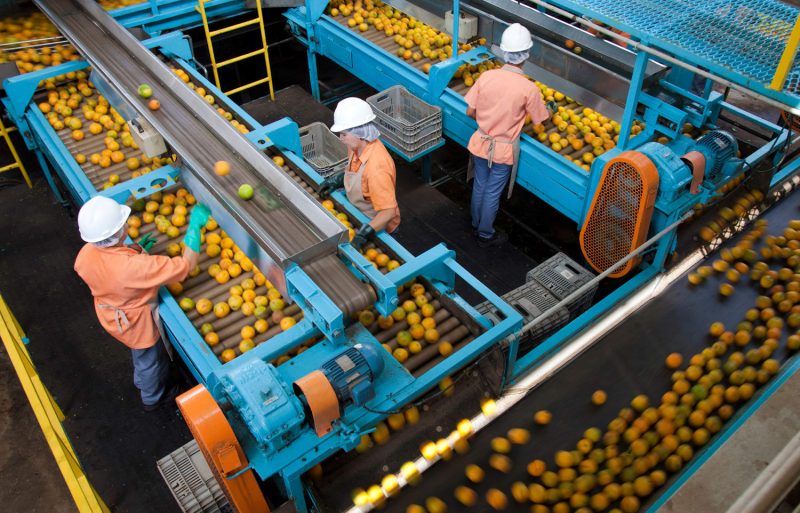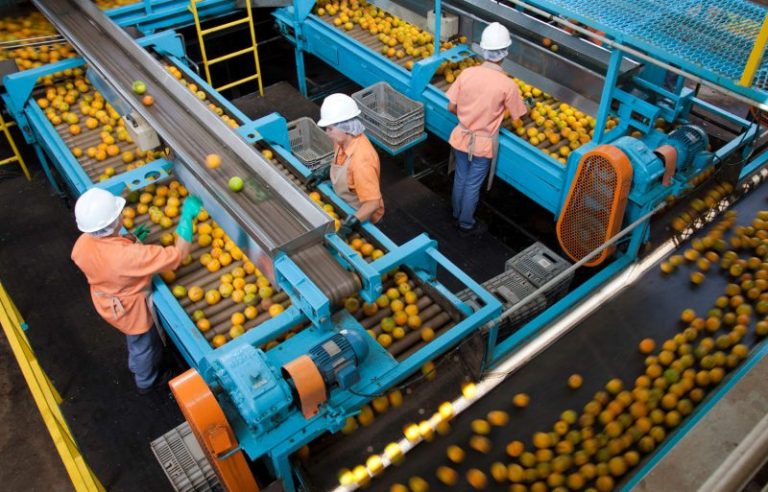
Orange juice prices could rise by 20% to 25%, according to Johanna Foods, a small U.S. business suing the White House over tariffs threatened against Brazil.
President Donald Trump said in a July 9 letter to President Luiz Inacio Lula da Silva that he would apply a 50% tariff to all imports from Brazil starting Aug. 1.
Trump said the high tariff rate was necessary because of ‘the way Brazil has treated former President Bolsonaro.’
Prosecutors in Brazil have alleged that Bolsonaro was part of a scheme that included a plan to assassinate the country’s current president, who defeated him in the last election, and Supreme Federal Court Justice Alexandre de Moraes. Bolsonaro has denied any wrongdoing.
Trump also said Brazil was censoring U.S.-based social media platforms and was running “unsustainable Trade Deficits” with the United States.
However, the United States has a goods trade surplus with Brazil — more than $7 billion last year, according to data from the Office of the U.S. Trade Representative.
Johanna Foods, which says it supplies nearly 75% of all private label “not from concentrate” orange juice to customers in the U.S., says those arguments do not constitute an economic emergency and therefore the president does not have the power to levy this tariff.
“The Brazil Letter does not refer to any legal or statutory authority under which the Brazil Tariff can be imposed by the President,” the company’s attorney Marc Kaplin writes in a filing.
“The Brazil Letter does not constitute a proper executive action, is not an Executive Order, does not reference or incorporate any Executive Orders or modify or amend any existing Executive Order,” the attorney continued.
The company said some of its customers include Walmart, Aldi, Wegman’s, Safeway and Albertsons.
Johanna Foods CEO Robert Facchina said the duty would result in an estimated $68 million hit, exceeding any single year of profits since the company was created in 1995.
“The Brazil Tariff will result in a significant, and perhaps prohibitive, price increase in a staple American breakfast food,” the lawsuit reads.
“The not from concentrate orange juice ingredients imported from Brazil are not reasonably available from any supplier in the United States in sufficient quantity or quality to meet the Plaintiffs’ production needs.”
Orange juice prices have already been rising across the country. Over the last year, the average price of a 16-ounce container rose 23 cents, or more than 5%, to $4.49, according to the Bureau of Labor Statistics.
Orange juice futures, the global benchmark that tracks the commodity, have also jumped recently. During the last month, they are up nearly 40%, with most of that increase coming on the heels of Trump’s threat.
Brazil’s Supreme Court ruled last month that social media companies can be held accountable for the content posted on their platforms. Elon Musk’s social media site, X, was also briefly banned last year in Brazil after Musk refused to comply with a court request to ban some accounts.
Facchina says layoffs of union manufacturing employees, administrative staff and a reduced production capacity at the company’s Flemington, New Jersey, and Spokane, Washington, facilities are near-certain should these tariffs go into effect. Johanna Foods employs almost 700 people across Washington state and New Jersey.
Brazil was the 18th-largest source of U.S. goods imports last year, with more than $42 billion worth of imports entering the country, according to U.S. International Trade Commission data.
In its legal filing, the company asks the Court of International Trade to declare that the International Emergency Economic Powers Act does not grant Trump the statutory authority to impose the tariffs against Brazil, and that the president has not identified a national emergency or “unusual and extraordinary threat” as required by the IEEPA law to impose the tariffs.
In response to the lawsuit, a White House spokesperson said the administration is ‘legally and fairly using tariff powers that have been granted to the executive branch by the Constitution and Congress to level the playing field for American workers and safeguard our national security.”

